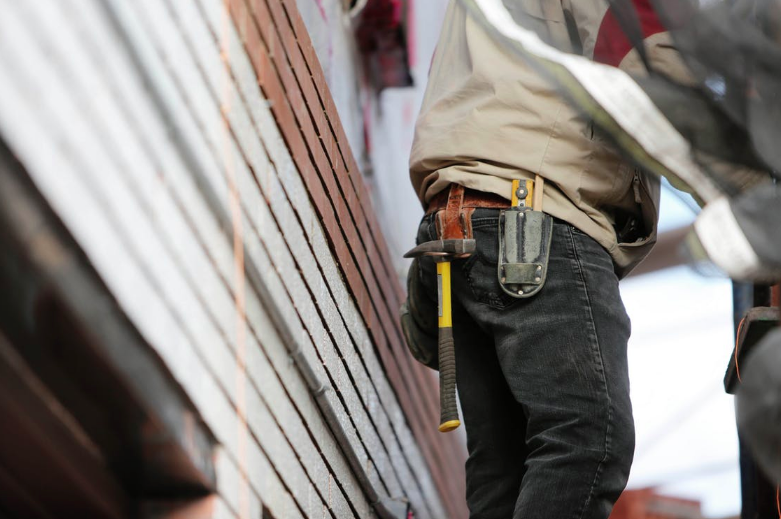You’ve likely seen the story on your local news: A fly-by-night contractor swoops into town and scams dozens of homeowners out of thousands of dollars each before disappearing without a trace.
No one wants to go through such an ordeal. And yet it happens all the time, especially during the summer when more homeowners start home improvement projects.
The vast majority of contractors are honest and trustworthy, but there will always be those who are ready and willing to run a scam and run off with your money. So how can you make sure you find a reliable and reputable contractor who keeps their promises? And how do you make sure you’re hiring the right professional for the job? Let’s take a look.
1. Do Your Homework
Websites like Angie’s List and HomeAdvisor help take the guesswork out of hiring someone sight unseen; these are great places to start your search. Each site has an extensive database of home improvement contractors reviewed by verified members. Another option is Handy.com. They will help you find a handyman for a simple task like hanging a TV all the way up to a contractor for a major remodel.
Try contacting your local chamber of commerce or building trade association and ask for their recommendations.
You can also ask your insurance company, even if they’re not paying for the work. Most insurance companies have agreements with reputable local contractors. Not only can you take advantage of the review process your insurance company has performed on these companies, but you might even get a price break based on the relationship between the contractor and your insurance company.
Once you’ve researched your options, make a list of at least three highly rated contractors you want to get a bid from and contact them directly.
2. Get Contractors’ License Numbers
After you create a shortlist of contractors, narrow down your list by calling and asking the contractors for their license numbers and certificates of insurance. All contractors, regardless of the state in which they operate, are required to have a business license and insurance coverage.
Having a business license number will allow you to contact your local municipality and determine whether the contractor is legally in business, while the certificate of insurance will ensure that the contractor is covered in the event anything goes wrong. Good contractors should carry both workers comp and liability insurance through their business. Ask to see their insurance policy so you can review their coverage.
Keep in mind that a business license is not the same as a contractor license. Each state, city, and municipality has different requirements for contractor licensing. Look up your state’s unique requirements so you know what licenses to look for from a reputable contractor.
3. Ask Questions
When it comes time to meet each contractor, it’s helpful to have a list of questions written out so you don’t forget something important. Consider asking them some or all of the following questions:
What Local Trade Associations Do You Belong To?
After the interview, call these organizations up and check that this contractor is indeed a member in good standing.
How Long Have You Been in Business?
Ask for proof for their tenure, since some fly-by-night contractors will claim “20 years’ experience” in the area when they actually only got into town last month.
Can You Give Me at Least 3 Recent References?
The keyword here is “recent.” Good contractors should be ready and willing to share the contact information of at least three homeowners they’ve worked with over the last year. If all they have are old references, it might be a sign that their work quality has dropped.
When you talk to these homeowners, ask them:
- How quickly did this contractor return your phone calls?
- Was the project completed on budget? If not, what happened?
- Did the contractor keep their promises to you?
- Was the contractor responsive to changes with the project? If there was any disagreement, what happened?
- Would you recommend this contractor to someone in your family?
4. Get An Itemized Bid
Every contractor you interview should provide you with an itemized bid. This is a bid that lists, item by item, everything you’ll be paying for. It should include:
- All labor costs (including estimated subcontractor costs, if your project calls for them)
- All materials (including specifics such as paint, drywall, and light fixtures)
- All permit fees
- Any other expenses, such as travel fees the contractor expects to bill for
An itemized bill gives you clear and upfront information about how much the project will cost. It also gives you the power to stay on budget. If the contractor’s initial bid is more than you can afford, you can easily change the scope of the project to better fit your budget. For example, you might decide to go with less-expensive tile or do all the painting yourself.
If changes to your original quote are necessary, document them on your original quote and make sure that both you and the contractor sign it. Your quote should also contain applicable information regarding warranties or guarantees on work performed and materials used.
Keep this agreement in a safe place until your warranty expires in case you ever have to pursue legal action against the contractor.
You also need to clarify whether the contractor’s bid is an estimate or fixed price. Estimates can wind up costing you much more, so find out what factors might affect the final price.
If you’re looking for the best general contractor in the Joplin MO area for your home repairs, contact DeGraff Construction today!

